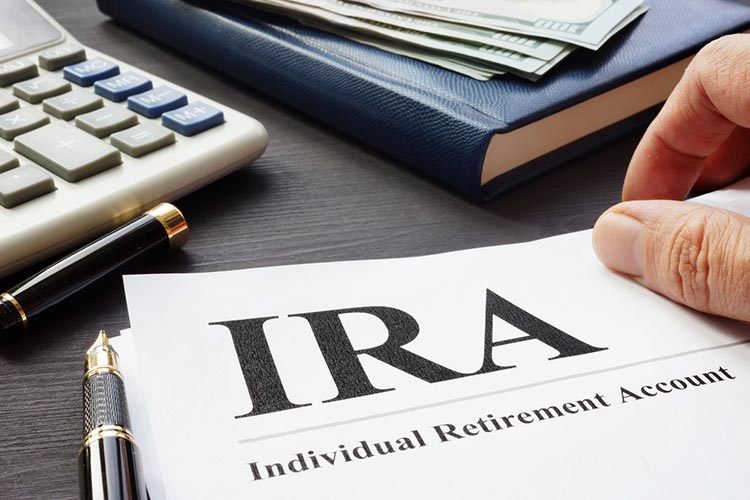
Unexpected financial events and major expenses are commonplace, but they can impact your retirement funds. This is especially true if you withdraw money from a retirement account to pay for them.
Natural disasters, illnesses, or paying for a child’s wedding or college tuition can bring major financial challenges that affect your financial security. On the other hand, there’s no need to demonstrate economic hardship if you want to take normal distributions from your individual retirement account. The way you take money out of your retirement account can have substantial tax implications, however.
Below is an overview of the tax treatment of IRA withdrawals and distributions. To clarify each term, a withdrawal is money taken out of your retirement account before age 59-½. A required minimum distribution (RMD), meanwhile, is a required distribution that must be taken from your IRA annually once you reach age 72. Although the IRS defines an early withdrawal as a distribution, we’ve distinguished between the two terms to provide a better insight into their tax treatment.
Tax Treatment of IRA Withdrawals
For starters, the tax treatment of withdrawals depends on your IRA.
With a Roth IRA, you can take a tax-free withdrawal in retirement since the money you put into your Roth IRA has already been taxed. Traditional IRAs are funded with pre-tax funds, which means that any withdrawals from a traditional IRA will generate a tax liability.
According to the Internal Revenue Service, you can take money out of your traditional individual retirement account as a withdrawal anytime you may need to – say to pay for one of the incidents described above. Those funds will be included as part of your regular income for the year in which the withdrawal was made. This means it will be subject to your nominal tax rate, which is 10, 12, 22, 24, 32, 35, or 37 percent for both 2022 and 2023. If you are under the age of 59-½, any withdrawals may be subject to an additional 10 percent tax penalty.
Tax implications of premature withdrawal can be significant. An early withdrawal of $10,000, coupled with a 10-percent tax penalty, would result in a $3,400 tax liability if you are in the 24-percent tax bracket.
Tax Treatment of Required IRA Distributions
If you have saved retirement funds in a Roth IRA, there is no required minimum distribution. If you have a traditional IRA, you have to begin taking funds out of the account in the form of annual distributions starting at age 72.1 That age was bumped up by one year to age 73 starting in 2023. You’ll pay a penalty if you don’t start taking RMDs by this age. Conversely, you can withdraw more than one distribution in a calendar year without penalty.
Traditional IRAs are funded with pre-tax dollars, and they are allowed to grow tax-free. However, when you begin taking distributions, you’ll have to pay the deferred income taxes on any funds you receive through a distribution. These funds are considered ordinary income and are taxed at your nominal tax rate. For some retirees, this tax rate may be lower than when they were working full-time and earning a regular paycheck, so taking distributions after reaching retirement age could prove slightly more beneficial than when they were still working.
One last note: You can begin drawing down a traditional IRA through distributions once you reach age 59-½ without incurring premature withdrawal penalties.
Putting it all Together
Early withdrawals and regular distributions are both taxed as ordinary income if they come from a traditional IRA since those accounts are funded with pre-tax dollars and income taxes were deferred. Most premature withdrawals are also subject to a 10 percent tax penalty.
Regular IRA distributions can begin after you reach age 59-½, and you must start taking the required minimum distributions by age 73. However, distributions or qualified withdrawals from Roth IRAs aren’t subject to any additional taxation since these types of accounts were funded with post-tax dollars.
1 Retirement Topics – Required Minimum Distributions, IRS.gov, https://www.irs.gov/retirement-plans/plan-participant-employee/retirement-topics-required-minimum-distributions-rmds
This material is for general information and educational purposes only. Information is based on data gathered from what we believe are reliable sources. It is not guaranteed as to accuracy, does not purport to be complete and is not intended to be used as a primary basis for investment decisions. It should also not be construed as advice meeting the particular investment needs of any investor.
Realized does not provide tax or legal advice. This material is not a substitute for seeking the advice of a qualified professional for your individual situation.
Hypothetical examples shown are for illustrative purposes only.



